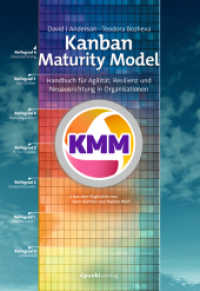- ホーム
- > 洋書
- > 英文書
- > Psychology
基本説明
Focuses on the complicated legal issues of causality.
Full Description
This book offers a welcome expansion on key concepts, terms, and issues in causality. It brings much needed clarity to psychological injury assessments and the legal contexts that employ them. Focusing on PTSD, traumatic brain injury, and chronic pain (and grounding readers in salient U.S. and Canadian case law), the book sets out a multifactorial causality framework to facilitate admissibility of psychological evidence in court.








